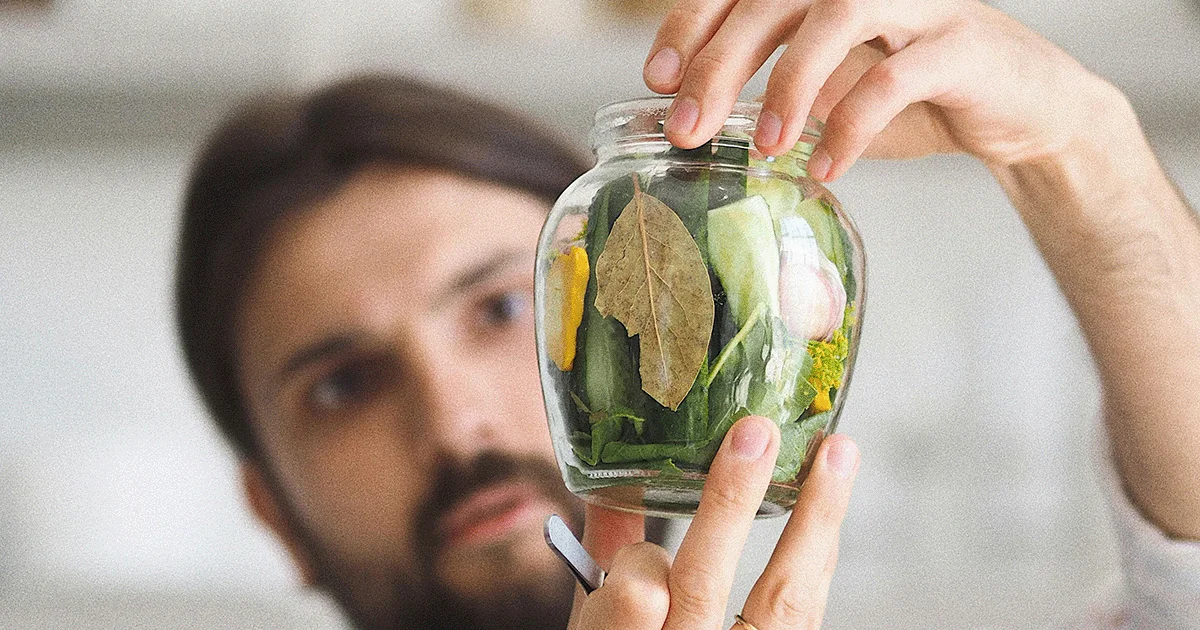Here's what we'll cover
Here's what we'll cover
There's nothing new about stress and anxiety. It's something humans have been experiencing since the days of being chased by saber tooth tigers. Still, it does seem like our modern lifestyles have caused anxiety levels to hit a fever pitch.
Anxiety disorders affect up to 20% of adults in the U.S. Children aren't spared; up to 12.8% of kids under 18 suffer from anxiety (Munir, 2021). And while many look to modern medicine, we're also starting to look back at older, traditional treatments like ashwagandha to help anxiety disorders. Does it work? Let’s take a look.
What is ashwagandha?
Ashwagandha, or Withania somnifera, is a hallmark of Ayurveda, one form of traditional Indian medicine. The medicinal plant, also known as Indian ginseng or winter cherry, is a part of other types of Indian and African traditional medicine. Ashwagandha is considered an essential herb for these traditional practices and an adaptogen, a group of plants that help your body deal with or adapt to physical and mental stressors alike.
Ashwagandha root is a drug of "Rasayana," a Sanskrit word that translates to a path of essence. It’s a practice of Ayurvedic medicine that refers to the science of lengthening lifespan. Traditionally, people believed this root could affect the entire body—from your nervous system to your blood pressure.
Although more research needs to be done, modern science is starting to find potential health benefits of ashwagandha. Studies suggest the herb may fight infection by boosting immune cells, decreasing inflammation markers, improving sleep, and protecting the brain from a plaque that may contribute to Alzheimer's, potentially preserving brain function (Mandlik Ingawale, 2021).
These benefits are suspected of coming from withanolides, naturally occurring steroidal lactones found in the root. Not all people experience the same benefits, though.
Ashwagandha and anxiety
Science is now beginning to uncover some of Ashwaganhda's potential benefits. One of the most eagerly embraced is its potential ability to mitigate chronic stress’s physical and psychological effects.
Possibly the most well-known effect of ashwagandha is its supposed ability to lower cortisol, otherwise known as the stress hormone. Placebo-controlled studies noted that people who took ashwagandha had significantly lower cortisol levels than those who took a placebo (Lopresti, 2019; Choudhary, 2017).
While you do want some cortisol—it's essential for vital functions like metabolism—chronically elevated levels of this hormone can lead to other problems like blood sugar issues and weight gain. So supplementing to reduce cortisol levels is a potential therapeutic use of Withania somnifera, with wide-ranging benefits.
Ashwagandha may ease anxiety beyond cortisol levels
A randomized, double-blind study of participants who were experiencing considerable stress found that ashwagandha helped. On a perceived stress scale (PSS) graded from 0 (essentially no stress) to 40, all participants self-scored at a 14 or higher at the beginning of the clinical trial. After 60 days, the placebo group's PSS had dropped an average of 5.5%, while those who supplemented twice a day with full-spectrum extract of ashwagandha root saw an average of a 44% decrease in their self-reported stress score (Chandrasekhar, 2012).
But these researchers didn't stop there. Along the way, they also had participants fill out depression anxiety stress scale (DASS) questionnaires, which break down concerns by type. That means researchers could see how people experienced depression, anxiety, and stress separately before and after treatment with the medicinal herb.
Their results showed that the adaptogenic herb really was living up to the hype with both an antidepressant and anxiolytic (anti-anxiety) effect. By day 60, there was a significant reduction in the treatment group in all areas: 77% for depression, about 64% for stress, and over 75% for anxiety. Of course, this was just one study, and determining whether or not ashwagandha actually has these effects will require further investigation (Chandrasekhar, 2012).
Of course, the mainstay of treatment for these disorders is a combination of therapy and prescription medication. But adding in an herbal remedy like ashwagandha (under your healthcare provider’s supervision) may have an impact. One animal study showed the active compounds extracted from ashwagandha root were as effective as lorazepam (Ativan) (Bhattacharya, 2000).
That's not to say that ashwagandha supplements are a cure-all for anxiety. Still, it may have a place in treating symptoms.
Another small study compared standard psychotherapy intervention (PT) versus naturopathic care (NC). Both groups were guided through deep breathing exercises. The PT group received psychotherapy, and a placebo pill, while those in the NC group got nutrition counseling, a multivitamin, and ashwagandha. After at least eight weeks of treatment, the NC group saw more significant effects on anxiety (Cooley, 2009).
While the study was quite small, it gives some hope that ashwagandha extract could be a valuable part of a holistic treatment plan to ease anxiety, boost overall mental health, and improve quality of life.
Dosage and forms of ashwagandha
Ashwagandha is available as an extract, but the most common form is capsules of powder. These are readily available at health stores, supplement stores, and online, but the FDA doesn’t regulate supplements like ashwagandha like they do prescription medications. Always do your research and go with a product you can trust. Talk to your healthcare professional if you don't know where to start.
A wide range of daily doses has been used in research on the medicinal herb with few adverse effects reported—doses go as high as 5 g. In many cases, the dose was broken up so that the participants took the herbal supplement 2–4 times a day instead of all at once (Pérez-Gómez, 2020; Raut, 2012).
You should start low to gauge tolerance and discuss the upper range with a medical professional. It's worth noting that most experimental studies looked at effects over 8–12 weeks. Give your supplement time to work before deciding whether it's a treatment worth continuing.
Side effects of ashwagandha
Generally, studies have found that ashwagandha’s most common side effects are mild and include sleepiness, loose stools, and gastrointestinal discomfort (Chandrasekhar, 2012).
Ashwagandha root extract may interfere with thyroid function testing. Pregnant people should avoid the herbal supplement, as it may cause miscarriages or other problems (MedlinePlus, 2020).
If you live with anxiety, ashwagandha may be a worthwhile addition to your regimen. Just be sure to check with your healthcare provider first to ensure it won’t interfere with any other parts of your treatment plan.
DISCLAIMER
If you have any medical questions or concerns, please talk to your healthcare provider. The articles on Health Guide are underpinned by peer-reviewed research and information drawn from medical societies and governmental agencies. However, they are not a substitute for professional medical advice, diagnosis, or treatment.
Bhattacharya, S., Bhattacharya, A., Sairam, K., & Ghosal, S. (2000). Anxiolytic-antidepressant activity of Withania somnifera glycowithanolides: an experimental study. Phytomedicine, 7 (6), 463–469. doi: 10.1016/s0944-7113(00)80030-6. Retrieved from https://pubmed.ncbi.nlm.nih.gov/11194174/
Choudhary, D., Bhattacharyya, S., & Joshi, K. (2017). Body weight management in adults under chronic stress through treatment with ashwagandha root extract. Journal of Evidence-Based Complementary & Alternative Medicine, 22 (1), 96-106. doi: 10.1177/2156587216641830. Retrieved from https://www.ncbi.nlm.nih.gov/pmc/articles/PMC5871210/
Chandrasekhar, K., Kapoor, J., & Anishetty, S. (2012). A prospective, randomized double-blind, placebo-controlled study of safety and efficacy of a high-concentration full-spectrum extract of Ashwagandha root in reducing stress and anxiety in adults. Indian Journal of Psychological Medicine, 34 (3), 255. doi: 10.4103/0253-7176.106022. Retrieved from https://pubmed.ncbi.nlm.nih.gov/23439798/
Cooley, K., Szczurko, O., Perri, D., Mills, E. J., Bernhardt, B., Zhou, Q., & Seely, D. (2009). Naturopathic care for anxiety: a randomized controlled trial. PLoS One, 4 (8). doi: 10.1371/journal.pone.0006628. Retrieved from https://pubmed.ncbi.nlm.nih.gov/19718255/
Lopresti, A. L., Smith, S. J., Malvi, H., & Kodgule, R. (2019). An investigation into the stress-relieving and pharmacological actions of an ashwagandha (Withania somnifera) extract: a randomized, double-blind, placebo-controlled study. Medicine, 98 (37), e17186. doi: 10.1097/MD.0000000000017186. Retrieved from https://pubmed.ncbi.nlm.nih.gov/31517876/
Mandlik Ingawale, D. S. & Namdeo, A. G. (2021). Pharmacological evaluation of Ashwagandha highlighting its healthcare claims, safety, and toxicity aspects. Journal of Dietary Supplements, 18 (2), 183–226. doi: 10.1080/19390211.2020.1741484. Retrieved from https://pubmed.ncbi.nlm.nih.gov/32242751/
Medline Plus. (2020). Ashwagandha. Retrieved Aug 25, 2021 from https://medlineplus.gov/druginfo/natural/953.html
Munir, S. & Takov, V. (2021). Generalized anxiety disorder. [Updated May 8, 2021]. In: StatPearls [Internet]. Retrieved from https://www.ncbi.nlm.nih.gov/books/NBK441870/
Pérez-Gómez, J., Villafaina, S., Adsuar, J. C., Merellano-Navarro, E., & Collado-Mateo, D. (2020). Effects of Ashwagandha (Withania somnifera) on VO2max: a systematic review and meta-analysis. Nutrients, 12 (4), 1119. doi: 10.3390/nu12041119, Retrieved from https://www.ncbi.nlm.nih.gov/pmc/articles/PMC7230697/
Raut, A., Rege, N., Shirolkar, S., Pandey, S., Tadvi, F., Solanki, P., et al. (2012). Exploratory study to evaluate tolerability, safety, and activity of Ashwagandha (Withania somnifera) in healthy volunteers. Journal of Ayurveda and Integrative Medicine, 3 (3), 111–114. doi: 10.4103/0975-9476.100168. Retrieved from https://pubmed.ncbi.nlm.nih.gov/23125505/










